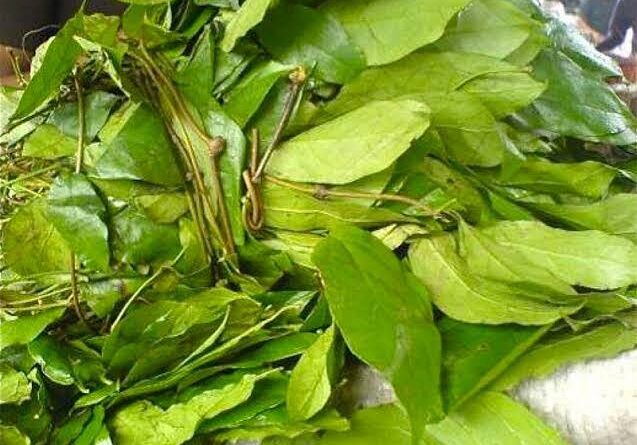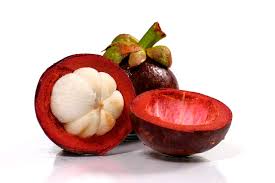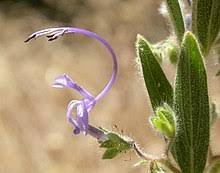Health Benefits and Uses of Okazi Leaves
Okazi leaves, also known as afang leaves, are a popular vegetable used in many Nigerian dishes, particularly in the southern and southeastern regions of the country. The leaves come from the Gnetum africanum plant, which is a climbing vine that grows in the tropical rainforests of Central and West Africa.
The leaves are dark green in color and have a tough texture, which makes them ideal for use in soups and stews. They have a slightly bitter taste and a strong aroma, which is why they are often paired with other ingredients to balance out their flavor.
Okazi leaves are commonly used to prepare dishes such as afang soup, which is made with a blend of okazi leaves and water leaves, and is typically served with fufu or eba (staple foods made from cassava or yam). The leaves are also used in other dishes such as egusi soup, vegetable soup, and oha soup.
Okazi leaves are rich in nutrients such as vitamins A and C, calcium, iron, and protein, making them a healthy addition to any diet. They are also believed to have medicinal properties, such as the ability to lower blood pressure and reduce inflammation.
Overall, okazi leaves are a versatile and nutritious vegetable that play an important role in Nigerian cuisine.
Read Also: Ways to Avoid Fowl Cholera Disease (Pasteurella multocida) in Poultry Farm Birds
Description of Okazi Leaves
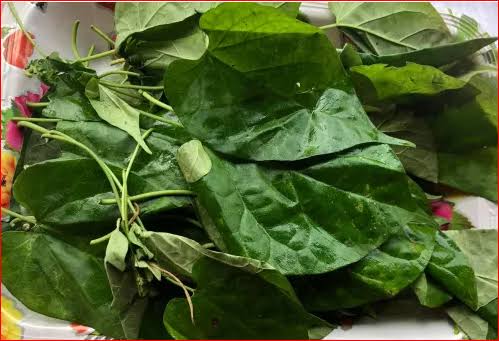
The leaves are traditionally used in Nigerian cuisine, particularly in the southern and southeastern regions of the country, to prepare a variety of dishes.
Okazi leaves are typically used in soups and stews, and are often paired with other ingredients to balance out their flavor. The leaves are also rich in nutrients, including vitamins A and C, calcium, iron, and protein, and are believed to have medicinal properties as well.
In terms of appearance, okazi leaves are oblong or ovate in shape, with a pointed tip and a slightly serrated edge. The leaves are typically 20-25 cm in length and 10-15 cm in width, although the size can vary depending on the specific plant and growing conditions.
Overall, okazi leaves are an important and versatile vegetable in Nigerian cuisine, and are valued for their unique flavor and nutritional benefits.
Health Benefits of Okazi Leaves
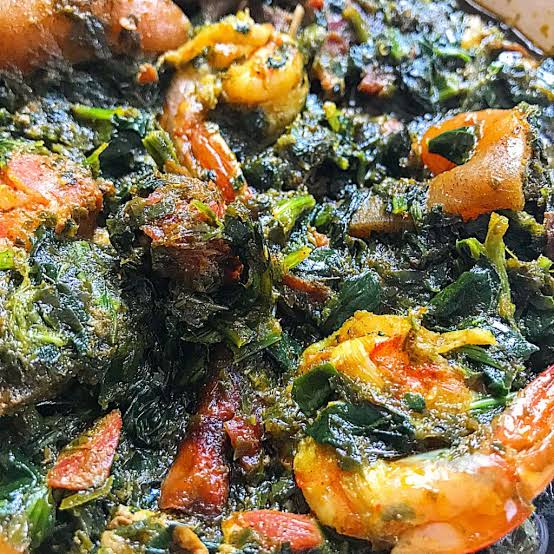
Rich in antioxidants: Okazi leaves are a good source of antioxidants, which protect the body from free radical damage and reduce the risk of chronic diseases.
Boosts immunity: Okazi leaves are rich in vitamin C, which helps to boost the immune system and protect the body against infections.
Promotes digestive health: Okazi leaves contain fiber, which helps to promote digestive health and prevent constipation.
Lowers cholesterol: Okazi leaves contain compounds that can help to lower cholesterol levels in the body, reducing the risk of heart disease.
Regulates blood sugar: Okazi leaves contain compounds that can help to regulate blood sugar levels, making them a good choice for people with diabetes.
Helps in weight loss: Okazi leaves are low in calories and high in fiber, making them a good addition to a weight loss diet.
Reduces inflammation: Okazi leaves contain compounds that have anti-inflammatory properties, which can help to reduce inflammation in the body.
Promotes healthy bones: Okazi leaves are rich in calcium, which is important for maintaining strong and healthy bones.
Reduces risk of cancer: Okazi leaves contain compounds that have been shown to have anti-cancer properties, reducing the risk of cancer.
Helps in wound healing: Okazi leaves contain compounds that can help to promote wound healing and reduce the risk of infections.
Reduces the risk of hypertension: Okazi leaves contain compounds that can help to lower blood pressure and reduce the risk of hypertension.
Helps in detoxification: Okazi leaves contain compounds that can help to detoxify the body and eliminate harmful toxins.
Promotes healthy skin: Okazi leaves are rich in vitamins A and C, which are important for maintaining healthy skin.
Reduces the risk of heart disease: Okazi leaves contain compounds that can help to reduce the risk of heart disease by lowering cholesterol levels and reducing inflammation.
Reduces the risk of stroke: Okazi leaves contain compounds that can help to reduce the risk of stroke by improving blood flow to the brain.
Helps in the management of asthma: Okazi leaves contain compounds that can help to manage asthma symptoms.
Promotes healthy vision: Okazi leaves are rich in vitamin A, which is important for maintaining healthy eyes and vision.
Boosts energy: Okazi leaves contain iron, which is important for the production of red blood cells and can help to boost energy levels.
Also, Okazi leaves are a nutritious vegetable with a range of health benefits, making them a great addition to any diet.
Read Also: Health Benefits and Uses of Shaki Meat
Uses of Okazi Leaves

Cooking: Okazi leaves are a popular ingredient in many Nigerian dishes, particularly in the southern and southeastern regions of the country. They are commonly used to prepare soups and stews, such as afang soup and egusi soup, and are often paired with other ingredients to balance out their flavor.
Medicinal use: Okazi leaves are also used in traditional medicine for their medicinal properties. They are believed to have anti-inflammatory, antioxidant, and anti-cancer properties, and are used to treat a range of conditions, including fever, diarrhea, and high blood pressure.
Flavoring: Okazi leaves have a slightly bitter taste and a strong aroma, which makes them ideal for use as a flavoring agent in many dishes. They can also be used to add flavor to drinks and teas.
Cosmetic use: Okazi leaves are sometimes used in cosmetic products, such as soaps and creams, due to their skin-nourishing properties.
Livestock feed: Okazi leaves can also be used as livestock feed, particularly for goats and sheep, due to their high nutritional value.
Soil improvement: Okazi leaves can be used as a natural fertilizer to improve soil fertility, due to their high nutrient content.
Overall, Okazi leaves are a versatile ingredient with a range of uses, both in Nigerian cuisine and in traditional medicine. They are valued for their unique flavor and nutritional properties, and are an important part of the local culture and economy in many parts of West Africa.
Read Also: Key Strategies In Becoming Successful In International Marketing

